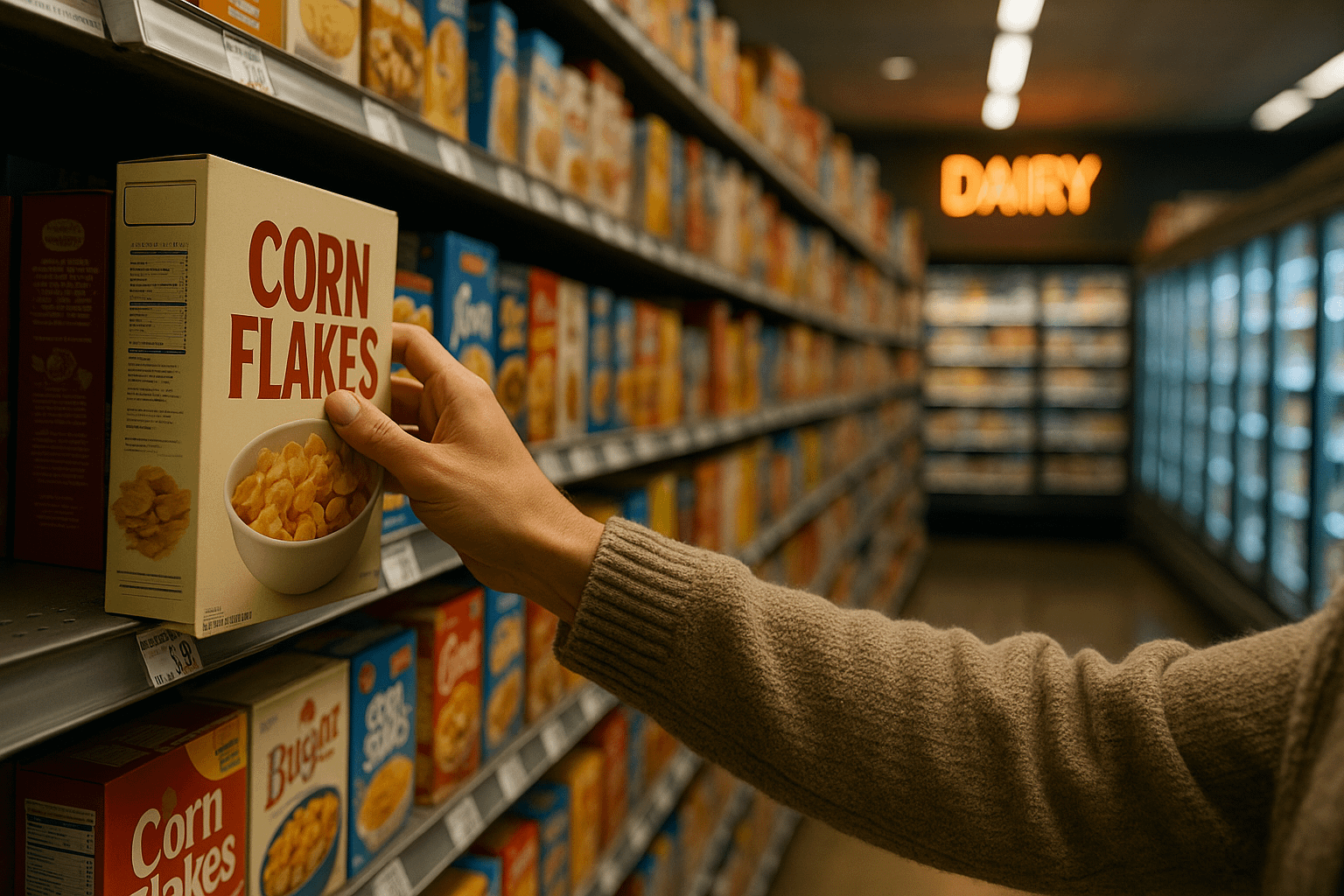Table of Contents
The free market system comes with many advantages, including minimal government involvement. However, despite these benefits, when a person uses or consumes a product, there is always an inherent risk that it might cause them to become injured, disabled, sick, or even pass away. Product liability law exists to protect consumers from harm and provide them with options if a business fails to protect them from their dangerous or defective products.
If you or a loved one has suffered an injury, illness, or loss due to a business’ product, you may be entitled to compensation. Contact Selsby & Leoni for a free consultation to learn more.
What Is Product Liability?
Businesses have a legal responsibility to accurately and safely market their products and shield the public from any product that might harm someone. If this responsibility has been breached, the business (and possibly other parties) may be held liable for the damages endured by the victims.
Product liability cases are handled by civil court and may involve hundreds or even thousands of additional plaintiffs through a class action lawsuit if enough people have been harmed. However, unlike other types of personal injury suits, product liability cases typically require proof that the product was unsafe and that they suffered as a result.
Types of Product Liability Cases
In most product liability cases, the first step is to contact a lawyer with experience in these types of cases who will attempt to negotiate a settlement directly through the at-fault business’s product liability insurance company. If the business doesn’t have liability insurance or the insurance company offers an unfair settlement (or refuses to settle altogether), the next step is to file a product liability lawsuit.
While a defective product lawsuit can be fairly straightforward, they can differ significantly from one another. For example, a person getting sick from consuming an adulterated ingredient is going to be litigated differently than a case where a building collapses due to faulty building materials.
Another challenge is determining how the defect led to harm and which party is liable. In many product liability cases, the evidence may show that the product was made unsafe during several different processes, including:
- Design: If the design is faulty, the product may have been dangerous from the start, affecting every lot on the market. Thus, the party responsible for its design may be considered liable.
- Manufacturing: While the design may have been safe, there are many cases where it may be ineffectively executed during the manufacturing process, which can result in dangerous or defective products and hundreds of thousands of claimants. If a product becomes dangerous during the manufacturing process, the party responsible will often be held liable.
- Distribution: Some products are corrupted during the distribution process, such as if food products become spoiled during shipping, or furniture breaks, causing injury when used. In some cases, the distributor may be held liable in product liability cases.
- Marketing: Even if the product itself is safe, it may be marketed or packaged in a way that is misleading or harmful.
Defective Medical Devices
Medical devices are one of many types of products that are commonly featured in product liability lawsuits. Many of these cases involve medical testing equipment such as blood pressure monitors, home medical devices such as wheelchairs or crutches, or even surgical devices such as hip implants or dentures. When medical devices are defective, they can cause infections, injury, chronic pain, disability, medical emergencies, and even wrongful death.
Further, if a business’ medical devices do not include the possible risks involved with using them or clear instructions on how to use the product to avoid harm, the business may be held accountable in court.
Dangerous Pharmaceuticals
Like any other business, pharmaceutical companies are held liable when they release dangerous products into the marketplace or fail to disclose any potential risks. Many drugs have life-threatening side effects when taken by the wrong person or counteractions that can cause permanent disability or even death. Pharmaceutical companies may even be held liable for contamination of their products, or even overly addictive products, especially if the risk of dependency is not disclosed.
Auto Part Failures
When people think of the causes of car accidents, they tend to think of collisions or weather conditions. However, auto part failures contribute to tens of thousands of car accidents every year, resulting in severe injuries, coma, disability, and even death. The specific parts that fail in these cases could be any number of products, including malfunctioning brakes, faulty airbags, blown tires, or steering system defects.
Victims who have been injured, traumatized, or have lost a loved one to an auto part failure often have the option to pursue compensation for their suffering.
Types of Products Involved in Product Liability Lawsuits
There are thousands of products that have injured people and that have resulted in a defective product lawsuit. Some of the more common are:
- Dangerous medications, including diabetes drugs, opioids, Zantac, Belviq, Elmiron, and Beovu
- Home exercise equipment, including recalled Peloton treadmills
- Pressure cookers made for in-home use by brands including CrockPot, Instant Pot, and NuWave
- Harmful baby products and toys, including Fisher Price Rock-N-Play sleepers, Johnson & Johnson baby powder, clothes, Halloween costumes, bottles, bottle nipples, and bicycles
- Medical devices known to cause injury to patients, such as DaVinci surgical robots, catheters, knee replacement devices, and hip replacement devices
- Household cleaning agents and chemicals, such as Paraquat herbicide (known to cause Parkinson’s Disease) and Roundup weedkiller
- Toxic chemicals found in the workplace, including pesticides, Benzene, asbestos, various carcinogens, and teratogens (toxins that can cause birth defects in unborn children)
- Faulty automotive designs, parts, and safety features, including Vanderhall rollover injuries, Takata airbags and seatbelts, defective brakes, tires, and gas tanks posing a fire or explosion hazard
No matter what type of product injured you, our product liability attorneys can help you with your case.

How a Product Liability Lawyer Can Help You
Product liability cases are similar to other types of personal injury cases, but they can be complicated by many factors. You’ll not only want to have someone in your corner who can anticipate and prepare for these challenges, but also someone who knows how to make sure that each step in the process is being followed to the letter. A product liability lawyer can serve as a guide throughout your case by advising you of your options, investigating your claim, filing paperwork at the right deadlines, and communicating with all necessary parties on your behalf.
Negotiating Product Liability Lawsuit Settlements vs Going to Trial
Arguably, one of the most crucial aspects of any personal injury case is the settlement negotiation process. In most product liability cases, a victim’s lawyer will contact the liable business’s insurance company and attempt to negotiate a settlement on behalf of their client. The insurance company may initially offer a very low settlement amount or even nothing at all. The victim’s lawyer will attempt to counter the offer with a fairer amount. If no agreement can be made, the case will move to trial.
Because no two product liability cases are alike, there are multiple factors to consider when deciding whether or not to take a settlement offer that is lower than hoped for. On one hand, if there is little evidence that supports the victim’s claims, the lawyer may argue for taking the settlement rather than potentially spending years in court. However, there may be cases where going to trial is the better option, especially if there are other victims or if there is plenty of evidence to support your product liability claim.
Product Liability Lawyer: FAQs
Who Can Be Held Liable for a Product Liability Injury?
In some product liability cases, there is a clear at-fault party, but in others, it may take time to uncover who was truly responsible for the product becoming defective. A product may have been designed poorly, pointing to the part responsible for development being liable. In other cases, it may be discovered that the product was negligently handled during manufacture, distribution, or irresponsibly marketed. Depending on the details of the case, some or all of these parties may be held liable for injuries or illness suffered due to the defective product.
What Is the Statute of Limitations on Filing a Product Liability Case?
Typically, the statute of limitations begins on the date of discovery and depends on the case and the state where the product liability suit is being filed. In Maryland, the statute of limitations for product liability cases is three years, but in Delaware, it’s two.
Can I Sue for a Defective Product?
You can file a lawsuit if you were injured by a defective product. Talk to a faulty product lawyer as soon as possible after you have been injured by a design defect so we can get to work as soon as possible on your case and be within the state’s legal deadlines for filing.
Is It Illegal to Sell a Defective Product?
If a vendor or manufacturer knew a product was defective and sold it anyway without warning consumers of the risk of using that product, then yes, they can be sued for compensation and repercussions for the damage they have caused.
Speak with an Experienced Product Liability Attorney Today
Product liability law differs from other types of personal injury cases in that what caused the injury was a defective, poorly designed, or unsafe product, as opposed to a negligent act committed by another person. If you or a loved one have been hurt or injured due to using an unsafe product, a product liability lawyer can help you sue for compensation.
Contact the defective product lawyers at Shelsby & Leoni, P.A. for help today. We have a wealth of experience handling product liability claims, and we want to help you. We will fight for your rights and for the compensation you are entitled to for your injuries.


